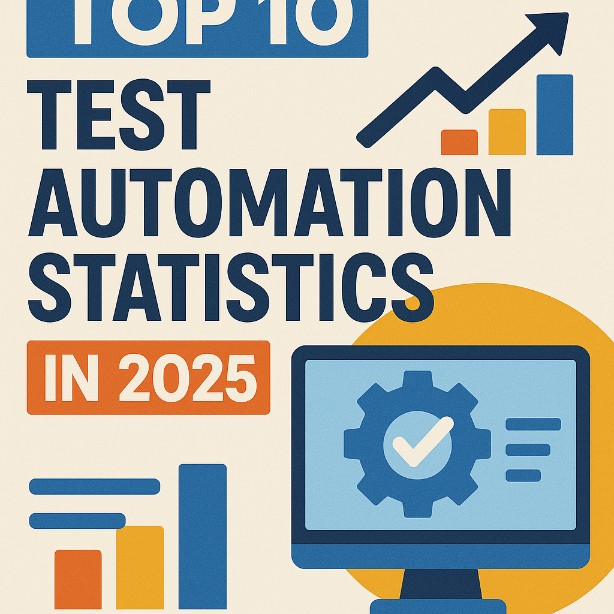Managing cloud infrastructure can be overwhelming for businesses and developers alike. With cloud platforms becoming the backbone of modern IT infrastructure, it’s critical to have tools that provide seamless management, monitoring, and optimization. Cloud Management Platforms (CMPs) empower users—whether they are non-technical business owners or seasoned DevOps professionals—to simplify operations, control costs, and improve performance.
In this article, we’ll explore the 10 best cloud management platforms of 2025 to help you find the right tool for your needs. From intuitive interfaces for beginners to advanced functionalities for experts, this guide has you covered.
Is Your Infrastructure Ready for Global Traffic Spikes?
Unexpected load surges can disrupt your services. With LoadFocus’s cutting-edge Load Testing solutions, simulate real-world traffic from multiple global locations in a single test. Our advanced engine dynamically upscales and downscales virtual users in real time, delivering comprehensive reports that empower you to identify and resolve performance bottlenecks before they affect your users.
Quick Overview: Best Cloud Management Platforms 2025
Here’s a quick overview of the top cloud management platforms. Each name links to its official website for further details:
- LoadFocus – All-in-one cloud-based load testing and monitoring.
- VMware Aria – Comprehensive multi-cloud management tool.
- Flexera – Cost management and governance at scale.
- CloudHealth by VMware – Optimized for cloud cost and performance management.
- Turbonomic – Application resource management driven by AI.
- Scalr – Hybrid cloud management with a focus on compliance.
- RightScale Optima – Enterprise-level cost optimization.
- ManageEngine Applications Manager – Monitoring for applications and cloud services.
- ServiceNow Cloud Management – IT service integration with cloud management.
- AWS Management Console – Native AWS management made simpler.
What Is a Cloud Management Platform?
A Cloud Management Platform (CMP) is a tool designed to manage cloud infrastructure, applications, and services across multiple providers. These platforms help businesses with tasks like cost management, resource provisioning, monitoring, and security.
Why Use a Cloud Management Platform?
- Non-technical business owners: Simplify cloud usage and reduce costs.
- Software engineers and DevOps teams: Gain deep insights and automation tools.
- Product owners and web agencies: Efficiently scale operations without bottlenecks.
CMPs cater to everyone, from students and small businesses to large enterprises with complex multi-cloud environments.
Think your website can handle a traffic spike?
Fair enough, but why leave it to chance? Uncover your website’s true limits with LoadFocus’s cloud-based Load Testing for Web Apps, Websites, and APIs. Avoid the risk of costly downtimes and missed opportunities—find out before your users do!
The Best Cloud Management Platforms in 2025
1. LoadFocus
Category: Cloud-Based Monitoring and Load Testing
LoadFocus is a user-friendly platform for cloud-based testing and monitoring. It helps developers and agencies ensure their applications can handle traffic spikes, with features like load testing, API monitoring, and speed insights.
- Key Features:
- Load and stress testing for applications.
- Real-time API monitoring.
- Page speed testing for website optimization.
- Best For: Small to mid-sized businesses, developers, and web agencies.
2. VMware Aria
Category: Multi-Cloud Management
Formerly VMware vRealize, VMware Aria is a robust solution for managing resources across multi-cloud environments. It offers automation, cost insights, and advanced analytics.
LoadFocus is an all-in-one Cloud Testing Platform for Websites and APIs for Load Testing, Apache JMeter Load Testing, Page Speed Monitoring and API Monitoring!
- Key Features:
- Multi-cloud automation and orchestration.
- Unified cost control dashboard.
- Performance and capacity analytics.
- Best For: Enterprises with hybrid cloud architectures.
3. Flexera
Category: Cost Optimization and Governance
Flexera is tailored for businesses needing robust cost optimization and governance. It offers visibility into multi-cloud spending and compliance controls.
- Key Features:
- Multi-cloud cost analysis.
- Governance and compliance management.
- Integration with popular cloud providers.
- Best For: Enterprises focused on cost management.
4. CloudHealth by VMware
Category: Cloud Cost and Performance Management
CloudHealth simplifies managing resources on AWS, Azure, and GCP. It provides insights to optimize performance and reduce costs.
- Key Features:
- Cross-cloud cost reporting.
- Policy-driven governance.
- Rightsizing and workload optimization.
- Best For: Businesses scaling operations on multiple clouds.
5. Turbonomic
Category: AI-Driven Application Resource Management
Turbonomic, an IBM company, uses AI to automate resource management for applications. It ensures apps get the resources they need without overspending.
- Key Features:
- AI-driven scaling recommendations.
- Performance assurance for critical applications.
- Automated resource allocation.
- Best For: DevOps teams focusing on application performance.
6. Scalr
Category: Hybrid Cloud Management
Scalr is a CMP built for compliance-focused environments. It emphasizes flexibility for hybrid and multi-cloud deployments.
- Key Features:
- Self-service portals for developers.
- Customizable workflows.
- Policy-based governance.
- Best For: Enterprises with strict compliance needs.
7. RightScale Optima
Category: Enterprise-Level Cost Optimization
RightScale, now part of Flexera, offers Optima for enterprises needing precise control over cloud costs and usage.
- Key Features:
- Cost analysis and forecasting.
- Automated budget alerts.
- Detailed resource tagging.
- Best For: Enterprises with complex cloud environments.
8. ManageEngine Applications Manager
Category: Application and Cloud Monitoring
ManageEngine’s Applications Manager provides end-to-end monitoring for cloud services, applications, and databases.
- Key Features:
- Application performance insights.
- Cloud and hybrid infrastructure monitoring.
- Alerts and reports.
- Best For: SMBs needing simple monitoring solutions.
9. ServiceNow Cloud Management
Category: IT and Cloud Service Integration
ServiceNow combines IT service management with cloud operations. It provides a unified interface for IT and DevOps teams.
- Key Features:
- Workflow automation.
- Cloud provisioning and orchestration.
- Cost management tools.
- Best For: Enterprises needing IT integration with cloud management.
10. AWS Management Console
Category: AWS-Specific Management
The AWS Management Console is Amazon’s native interface for managing AWS services. It’s a powerful tool for AWS users but limited to its ecosystem.
- Key Features:
- Service-specific dashboards.
- Resource and billing management.
- Automation via AWS CloudFormation.
- Best For: Businesses deeply integrated with AWS.
Frequently Asked Questions
What is the best cloud management platform?
The “best” CMP depends on your needs. For all-in-one solutions, LoadFocus and VMware Aria stand out. For cost-focused management, Flexera is excellent.
Which cloud is best in the future?
AWS, Microsoft Azure, and Google Cloud are expected to dominate, but emerging platforms like Oracle Cloud and niche players will also grow.
What are the top 3 cloud platforms?
- Amazon Web Services (AWS)
- Microsoft Azure
- Google Cloud Platform (GCP)
What are the different types of cloud computing?
- Public Cloud: Resources shared by multiple users (e.g., AWS, Azure).
- Private Cloud: Dedicated resources for one organization.
- Hybrid Cloud: Combination of public and private clouds.
- Multi-Cloud: Use of multiple cloud providers.
What is the most complete cloud platform?
AWS is considered the most complete platform due to its vast service offerings, global presence, and developer-friendly tools.
Who is the No. 1 cloud provider?
Amazon Web Services (AWS) remains the top cloud provider in terms of market share and breadth of services.
What will cloud trends be in 2025?
Expect growth in AI-driven cloud management, edge computing, serverless architecture, and enhanced security services.
Is Azure better or AWS?
It depends on your needs. Azure excels in hybrid cloud setups and integrates well with Microsoft tools, while AWS leads in service diversity and global infrastructure.
Which cloud is growing faster?
Google Cloud is growing faster in percentage terms, but AWS and Azure lead in total revenue growth.
Conclusion
Choosing the right cloud management platform is essential for optimizing costs, improving performance, and streamlining operations. Many CMPs, like LoadFocus, make it easy to import templates, customize tasks with AI, and personalize your user interface with ambient sound and background options. Whether you’re a non-technical user or a DevOps pro, there’s a platform tailored for your needs.
![9 Best IT Incident Management Software [2025] 9 Best IT Incident Management Software [2025]](https://loadfocus.com/blog/wp-content/uploads/sites/5/2024/08/it-management-tools.jpg)




